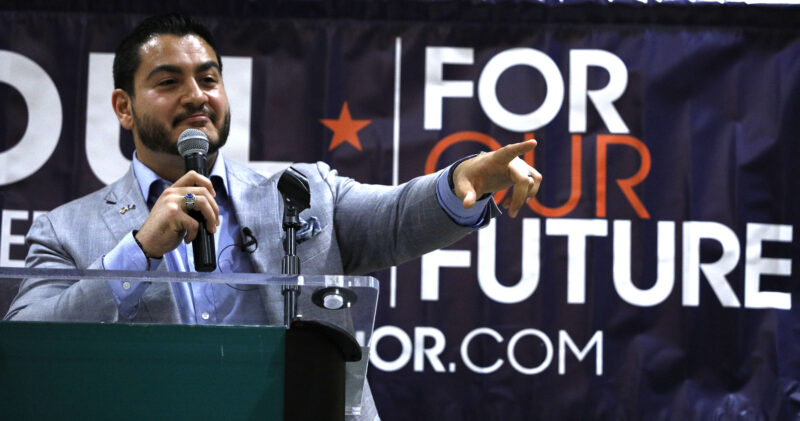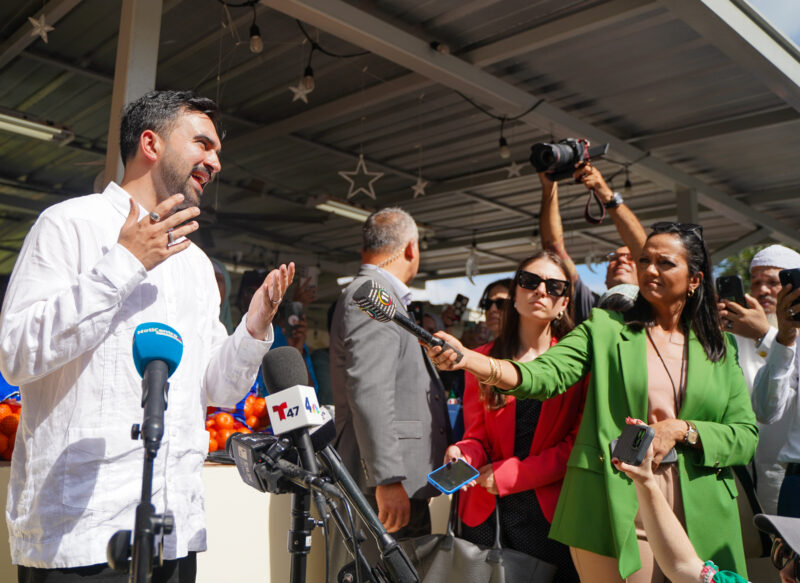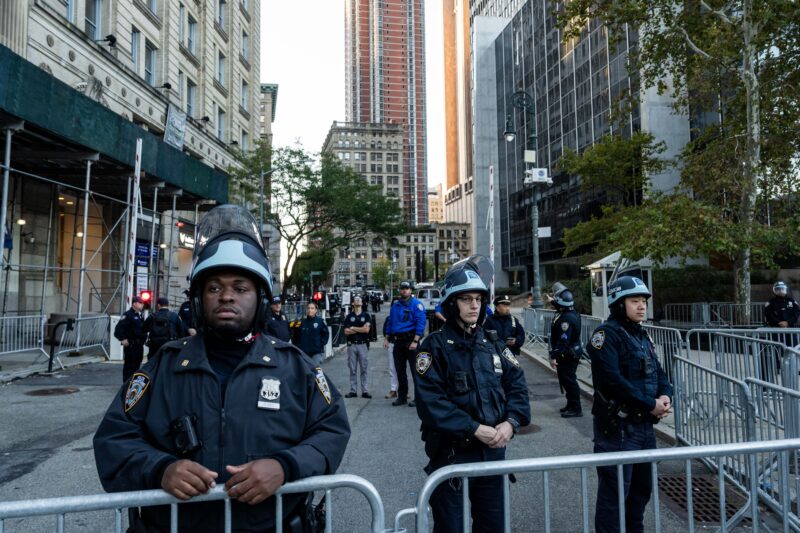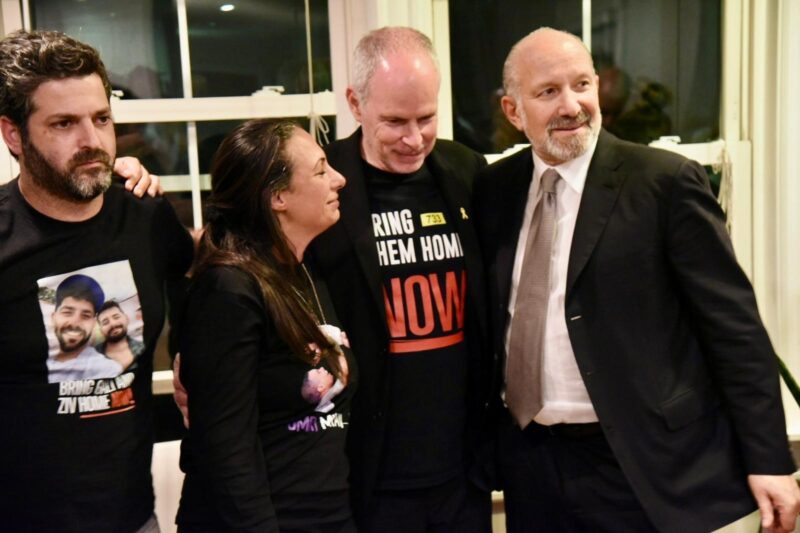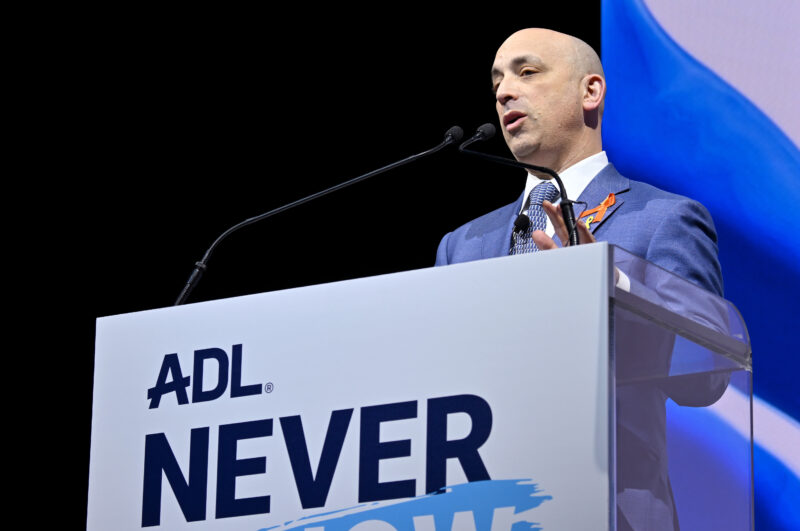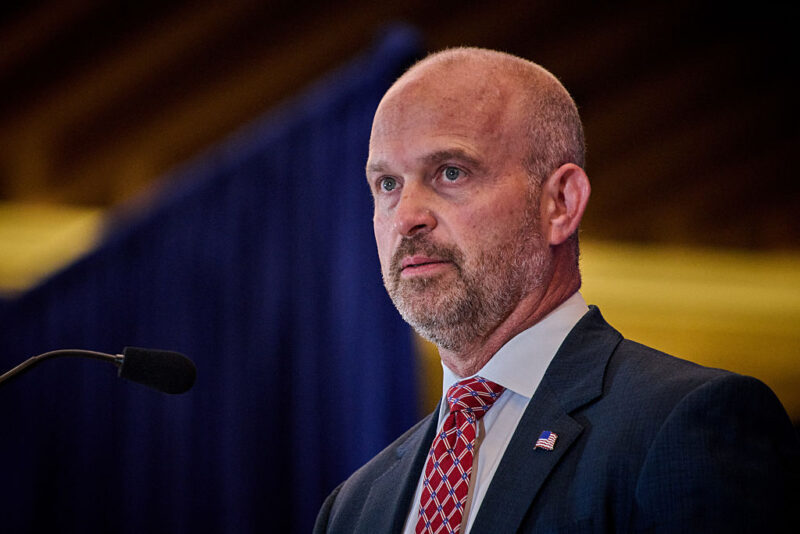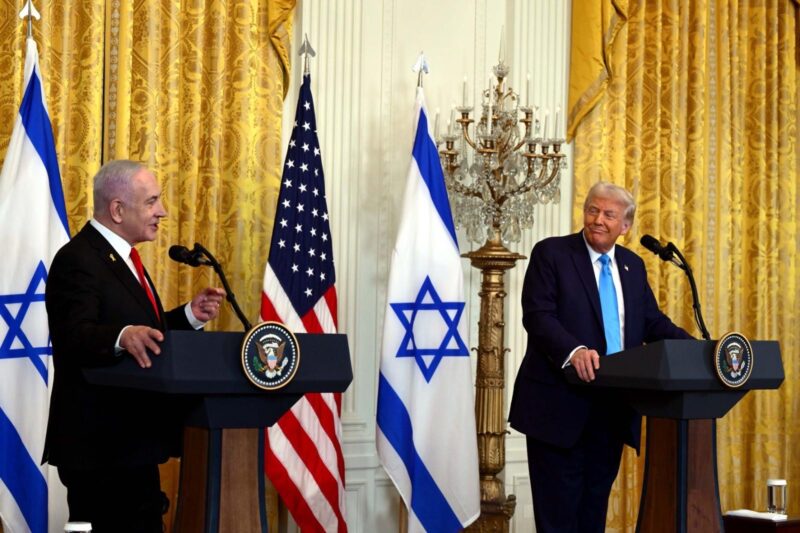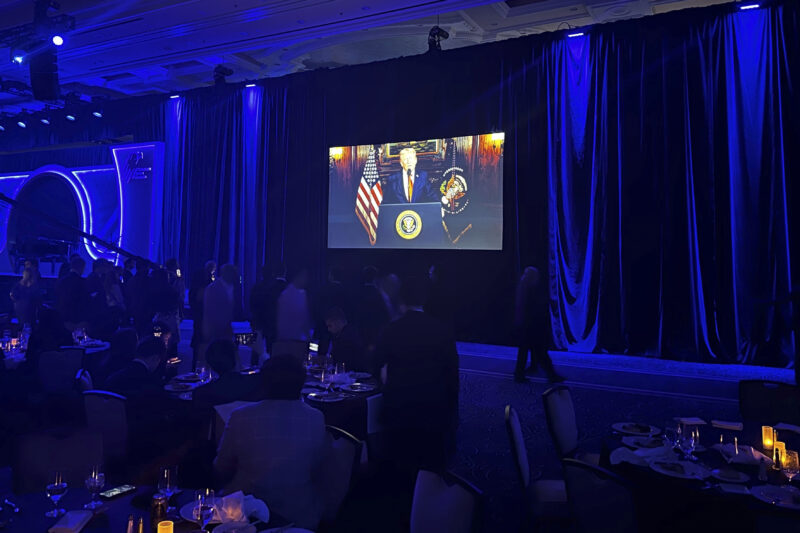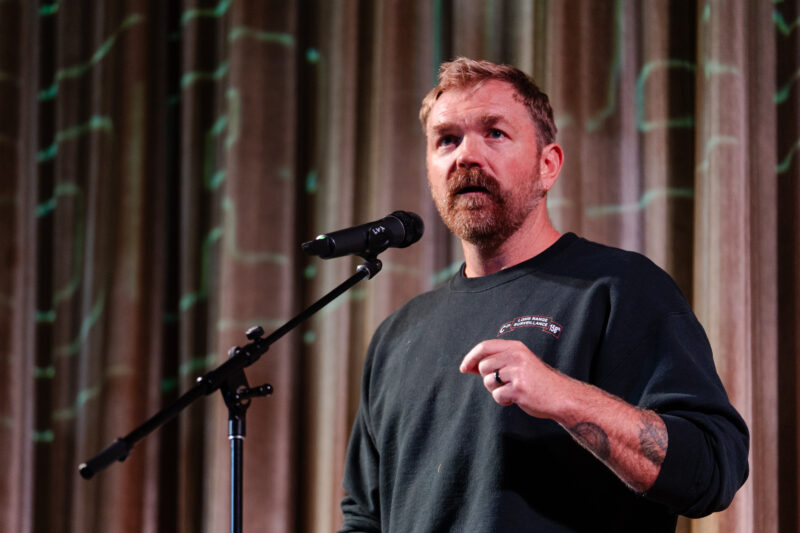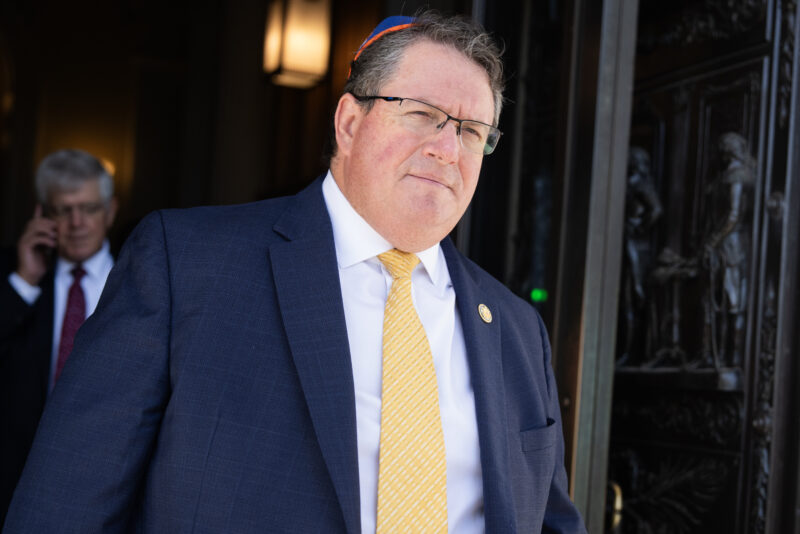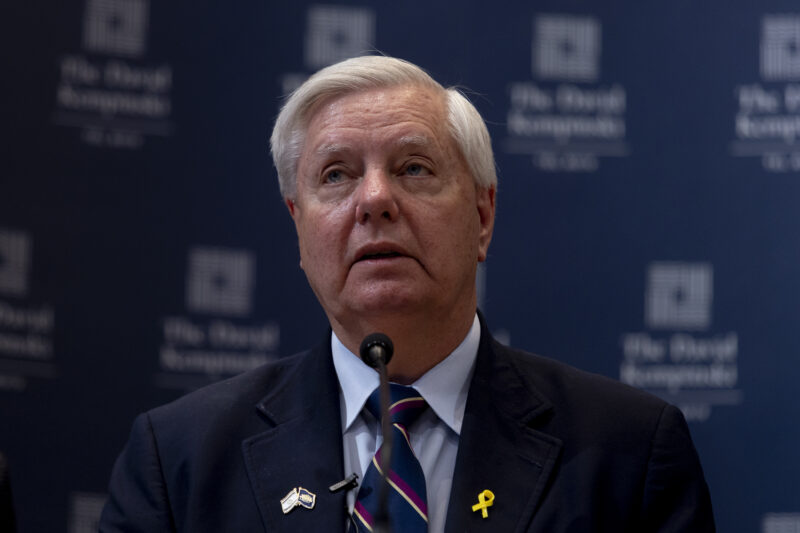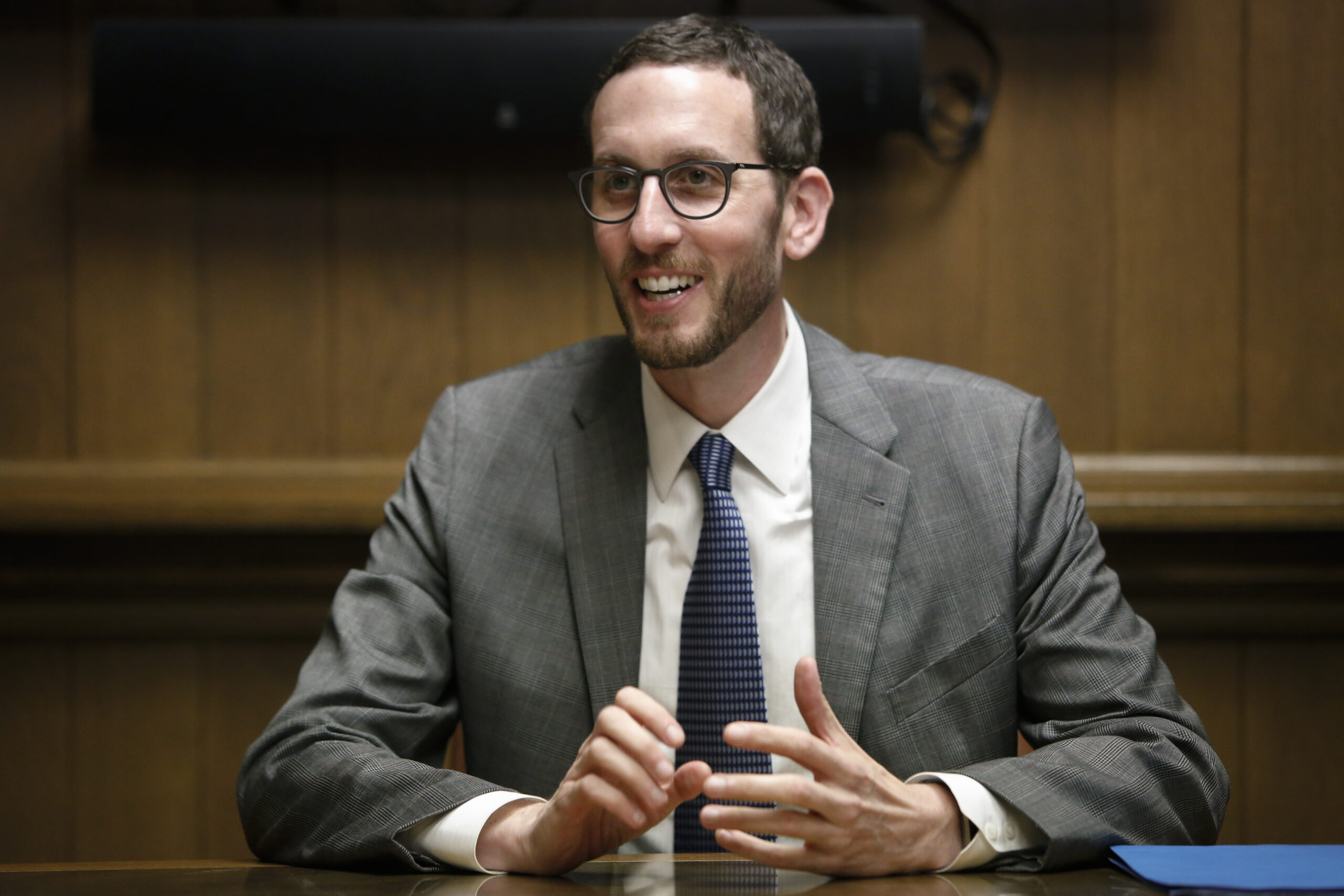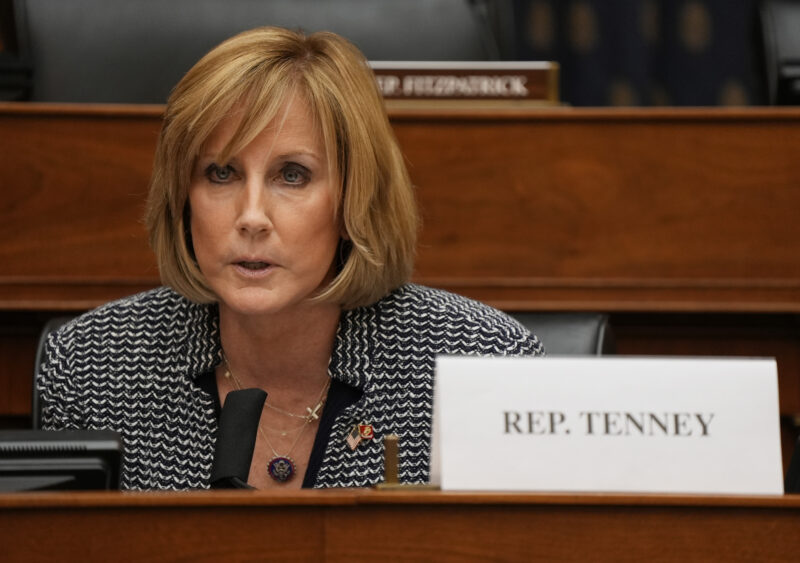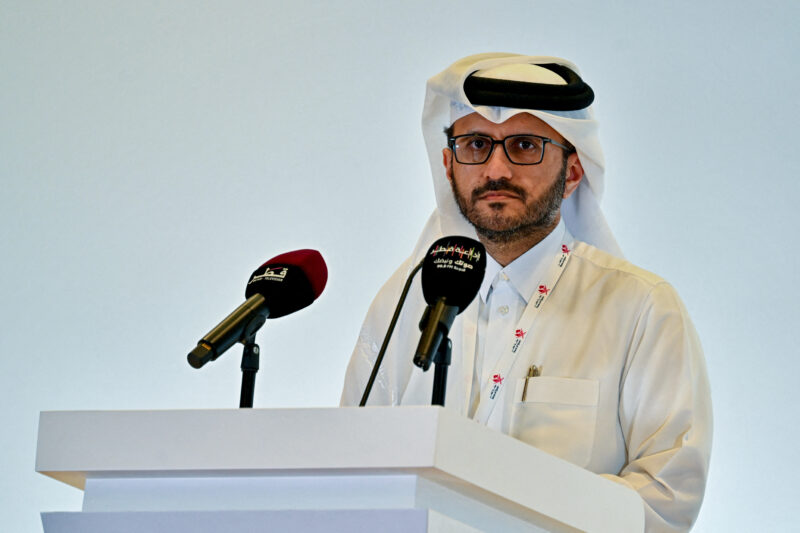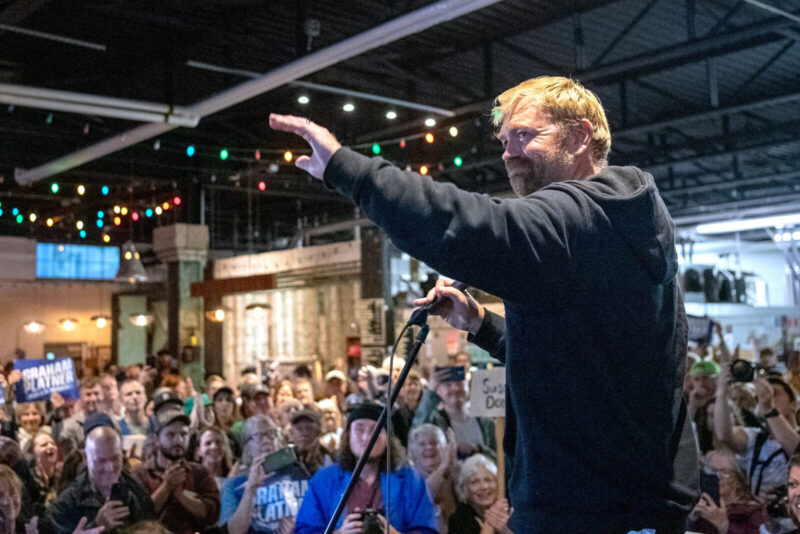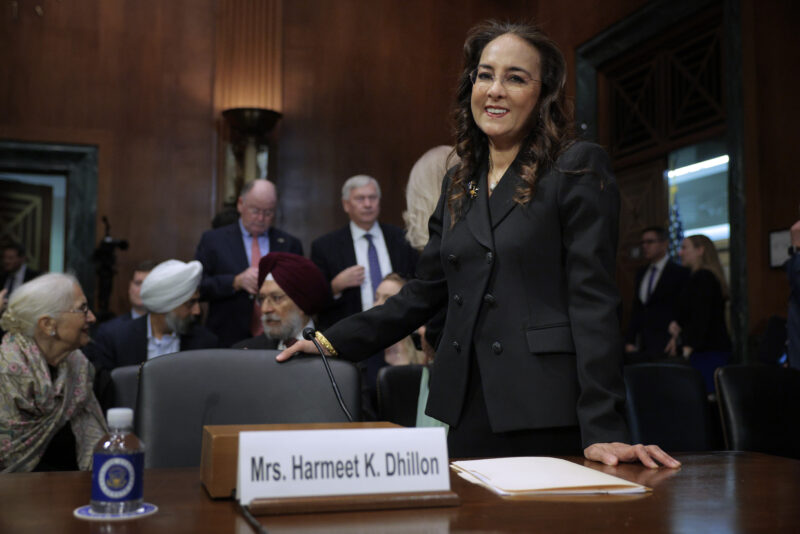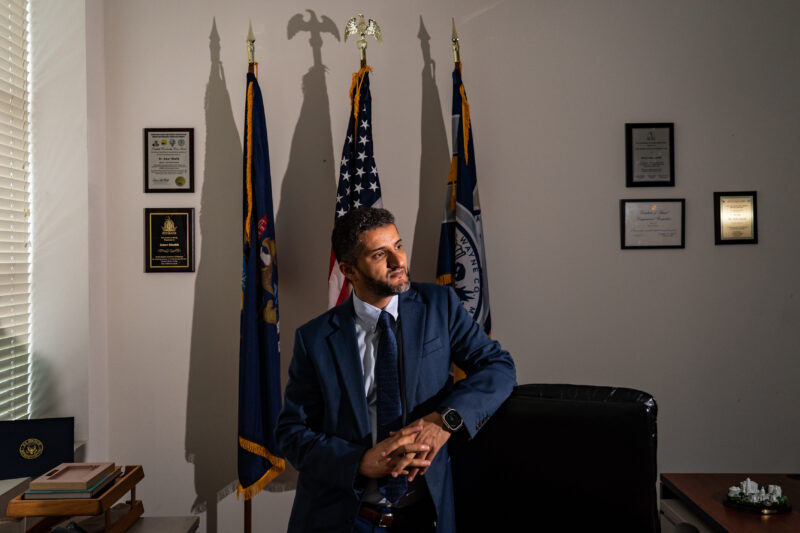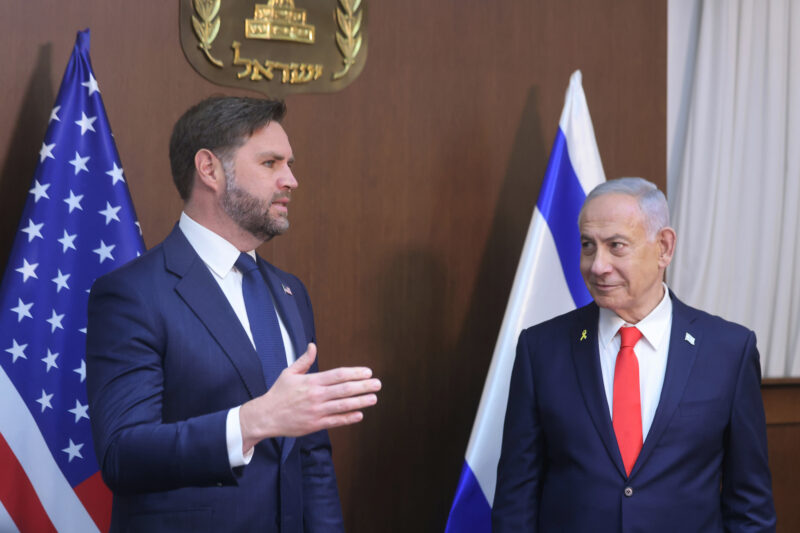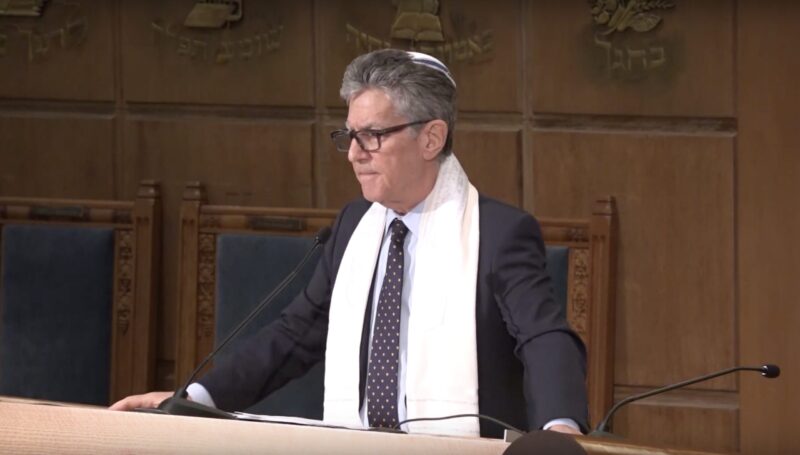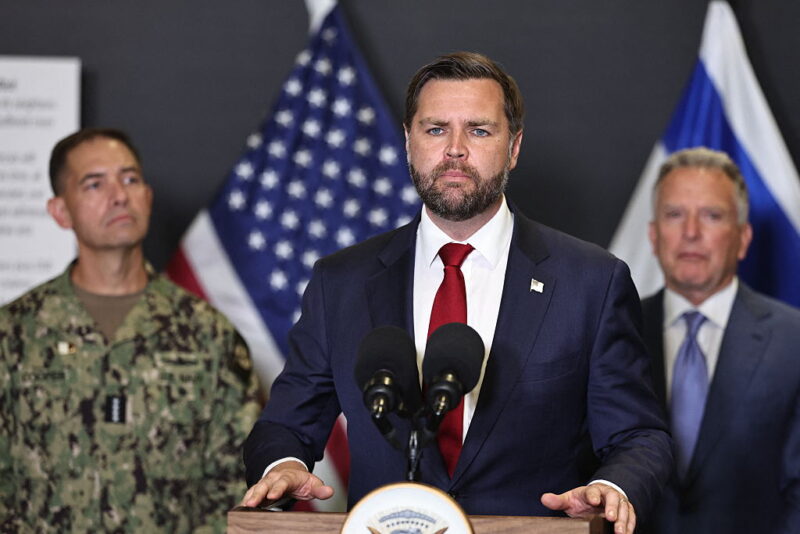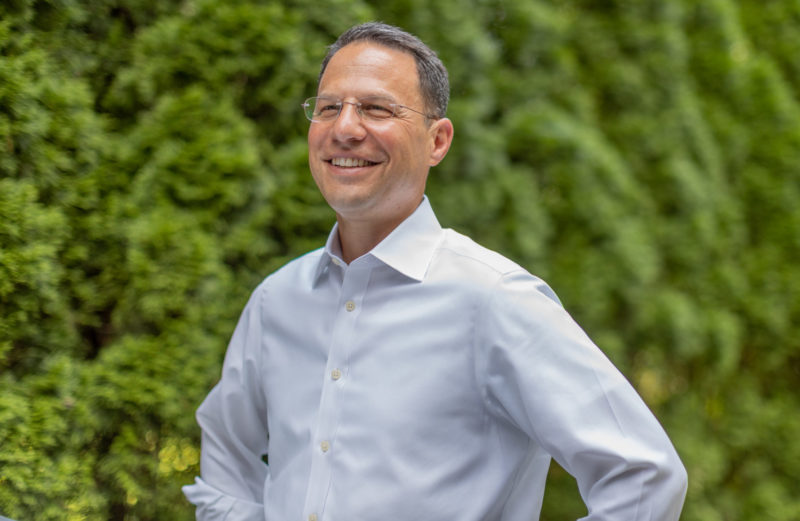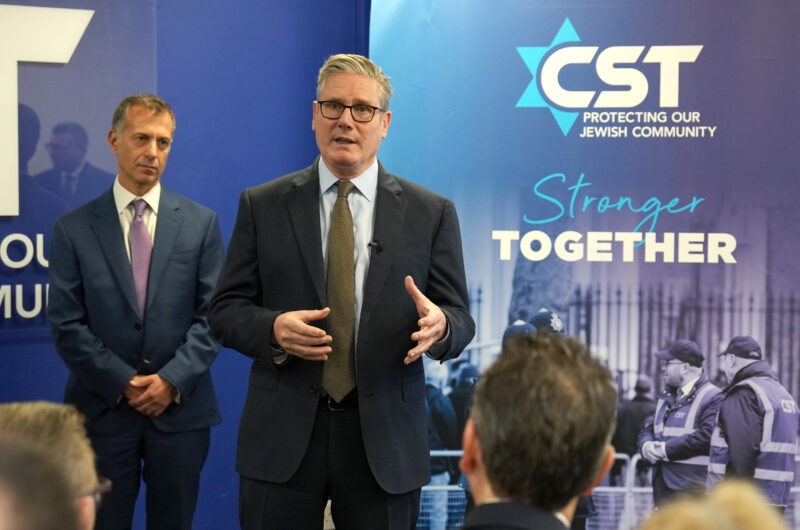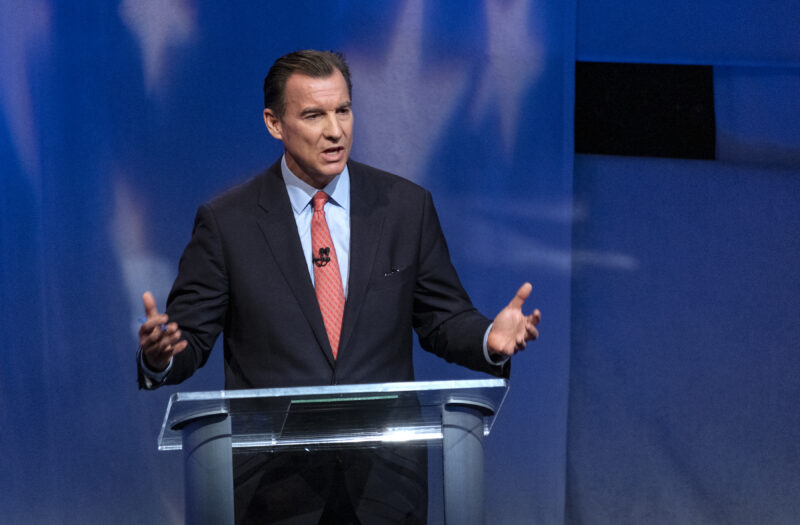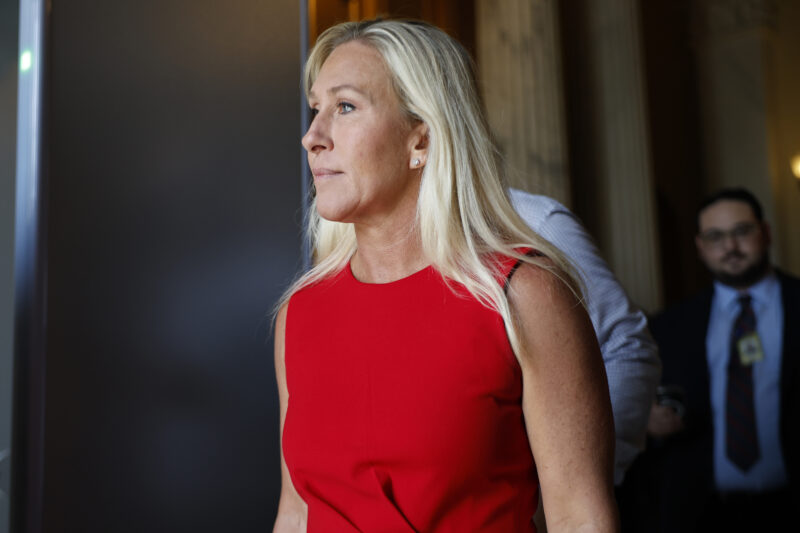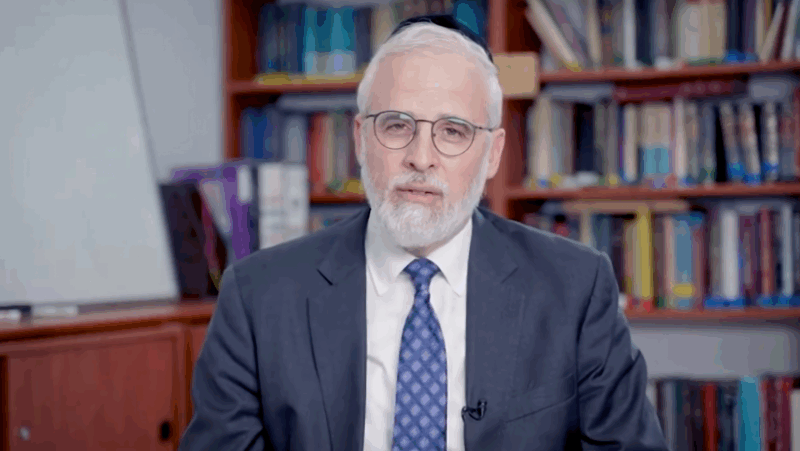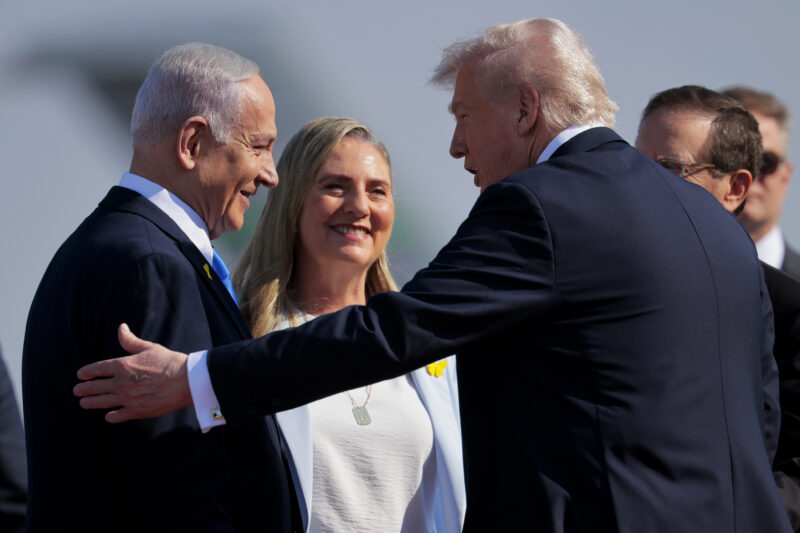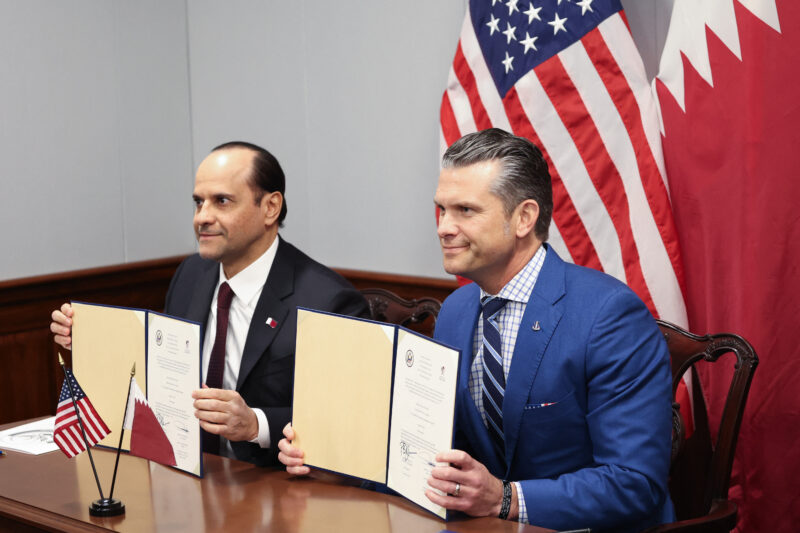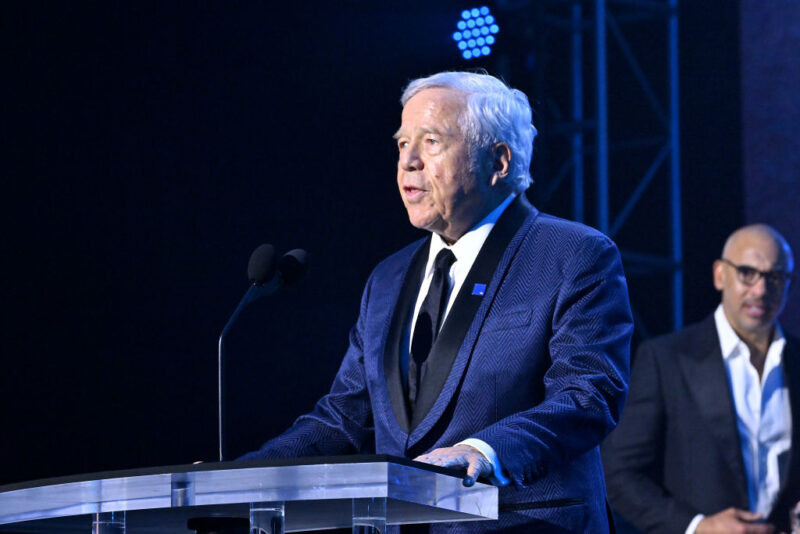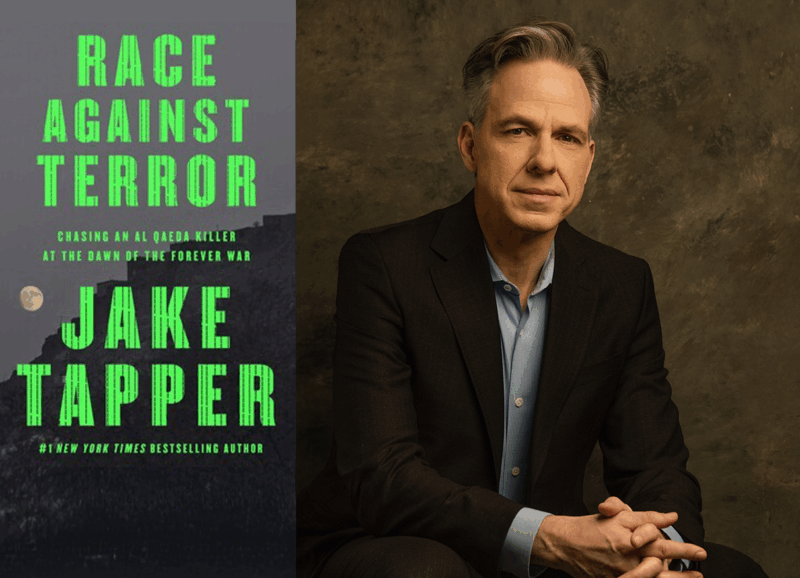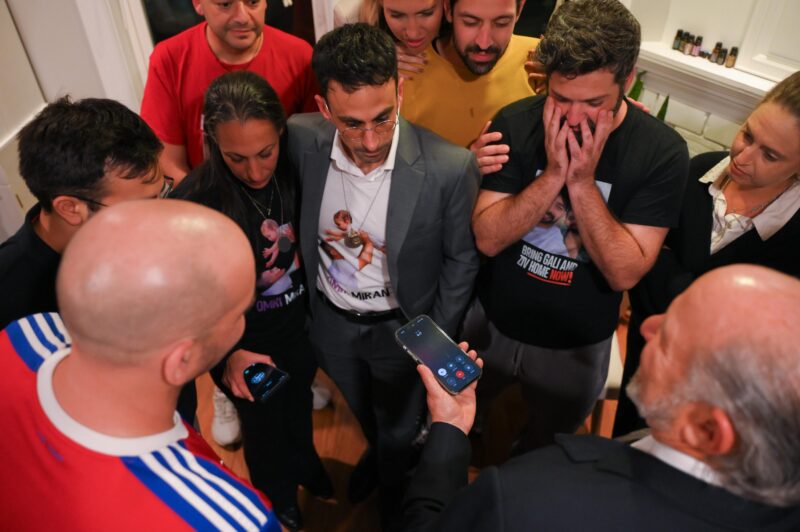Clintons tie Trump’s Gaza peace plan to Oslo Accords in Rabin memorial discussion
Former President Bill Clinton invoked slain Israeli Prime Minister Yitzhak Rabin’s ‘law’: ‘We will fight terror as if there are no negotiations. We will negotiate as if there is no terror’
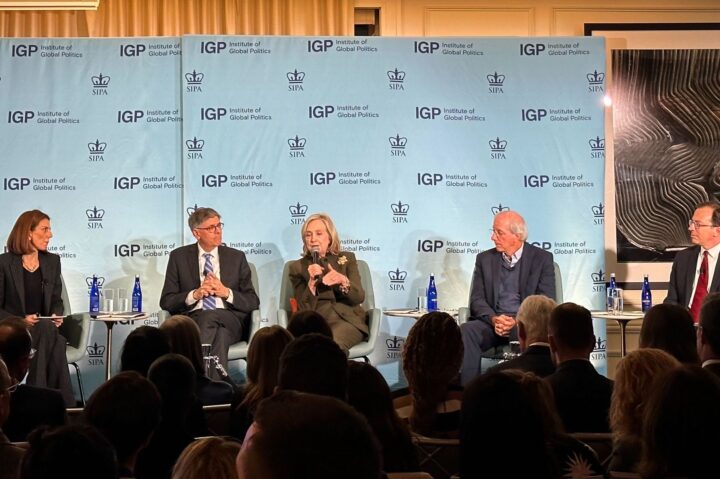
Haley Cohen
Panel discussion moderated by Keren Yarhi-Milo, dean of Columbia’s School of International and Public Affairs, features Israeli journalist Nadav Eyal; Hillary Clinton, former secretary of state; former diplomat and Middle East envoy Dennis Ross; and Jacob Lew, former ambassador to Israel. The panel was hosted by Columbia University’s Institute of Global Politics, Nov. 11, 2025.
Weeks after President Donald Trump announced a 20-point peace plan to end the war in Gaza, former Secretary of State Hillary Clinton said on Monday that this could be a “new moment of hope and possibility.” But it will only be successful if there is “a level of organization” applied to the implementation, a lesson that can be drawn from the Oslo process, she said.
“One thing that can be learned from the Oslo process and applied to the situation now with the peace plan is that there was a process,” Clinton said during a panel hosted by Columbia University’s Institute of Global Politics. The event commemorated the 30th anniversary of the assassination of Israeli Prime Minister Yitzhak Rabin, who was murdered by Yigal Amir, a right-wing extremist, soon after signing the Oslo II Accords peace agreements with then- Palestinian Authority President Yasser Arafat in 1995 — two years after the signing of the Oslo I Accords.
“You have to have a level of organization, it can’t just have few people at the top — whether it be a president or special envoy, as necessary as they are, you have to have teams of people who can be working with their counterparts,” continued Clinton, who is a professor of international and public affairs at Columbia.
As phase two of Trump’s plan is still being formulated, Hillary Clinton said the “devil is in the details” to determine its success. “Who’s gonna hammer out those details? Who’s going to be there going over maps?” she said.
“In the plan are many of the same goals as the Oslo process,” she continued. “But it starts from a different perspective. The region is different. Israeli leadership is different. Palestinian leadership is not different and that has to change. There are a lot of lessons that can be learned. Understand some of the procedural lessons that will enable us to build more of an infrastructure of peace going forward.”
The panel discussion also featured Jacob Lew, former U.S. ambassador to Israel; Israeli journalist Nadav Eyal; and former diplomat and Middle East envoy Dennis Ross. It was moderated by Keren Yarhi-Milo, dean of Columbia’s School of International and Public Affairs.
The event opened with remarks delivered by Claire Shipman, acting president of Columbia University, and former President Bill Clinton. Shipman, a former journalist, reflected on her time covering the White House during the Clinton administration.
In 40-minute remarks, former President Clinton, who mediated the Oslo Accords signing — which he hosted at the White House — spoke about his close personal and professional relationship with Rabin, calling the assassination one of the worst days of his life.
“We have to begin again, where the trust level is low,” Clinton said of achieving Israeli-Palestinian peace. “People in power might not be in favor of giving up on anything now.”
Clinton invoked “Rabin’s law — that’s what we called it in the White House.”
“We will fight terror as if there are no negotiations. We will negotiate as if there is no terror, never stop talking to people about resolving this,” Clinton said. “[Rabin] always believed peace is achieved through compromise.”




